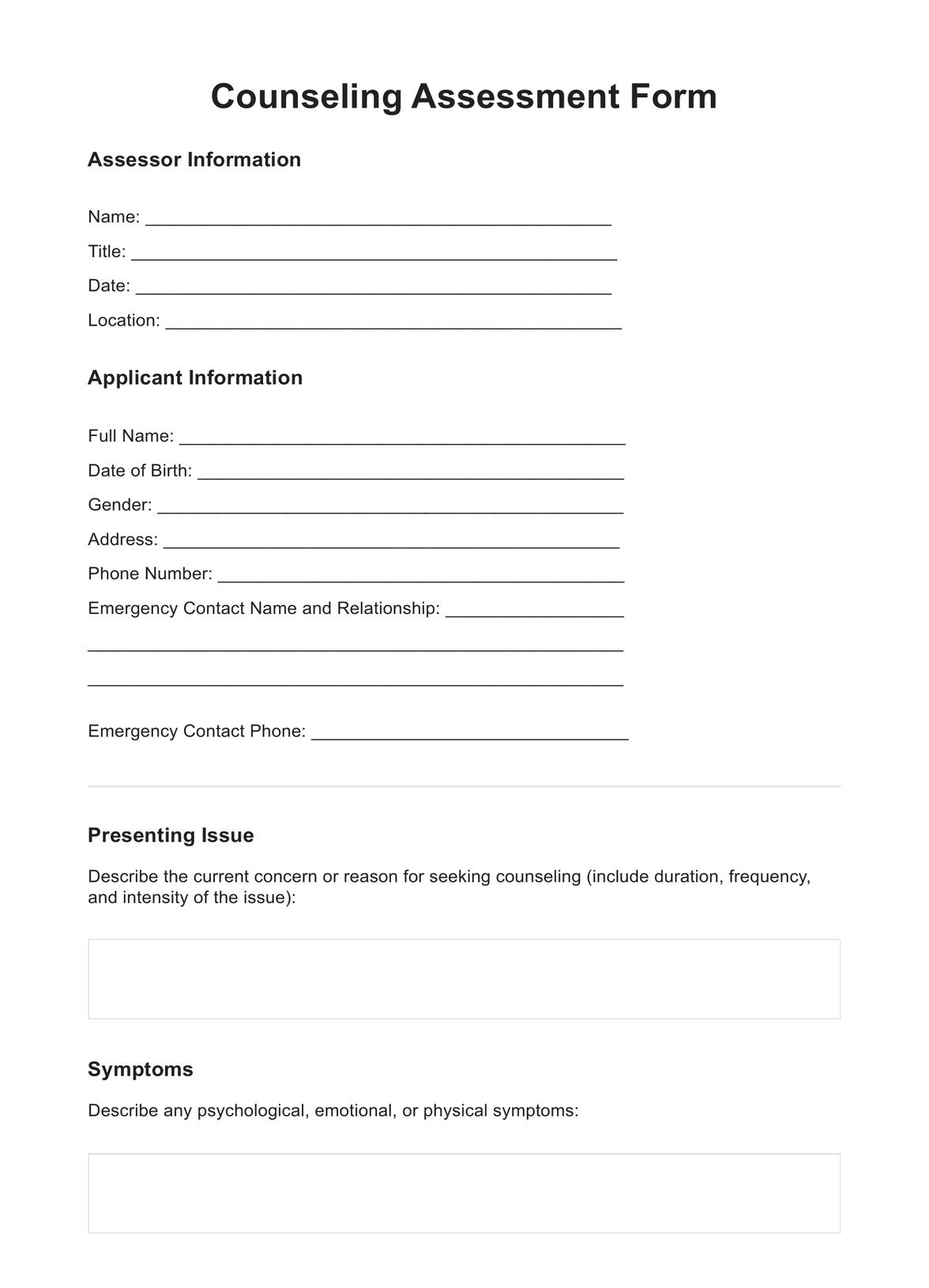Counseling assessments are primarily used by mental health professionals, including psychologists, psychiatrists, and counselors, to understand their clients' mental health needs and guide their treatment.

Counseling Assessment
Discover the essentials of Counseling Assessments - crucial tools used in understanding a client's mental health condition & creating effective treatment plans.
Counseling Assessment Template
Commonly asked questions
Counseling assessments are typically used at the beginning of the therapeutic process, but they can also be used throughout therapy to monitor progress and adjust treatment plans as needed.
The counseling assessment involves a combination of interviews, observation, and standardized tests to evaluate a client's mental, emotional, and behavioral health. The results are used to develop a personalized treatment plan for the client.
EHR and practice management software
Get started for free
*No credit card required
Free
$0/usd
Unlimited clients
Telehealth
1GB of storage
Client portal text
Automated billing and online payments











